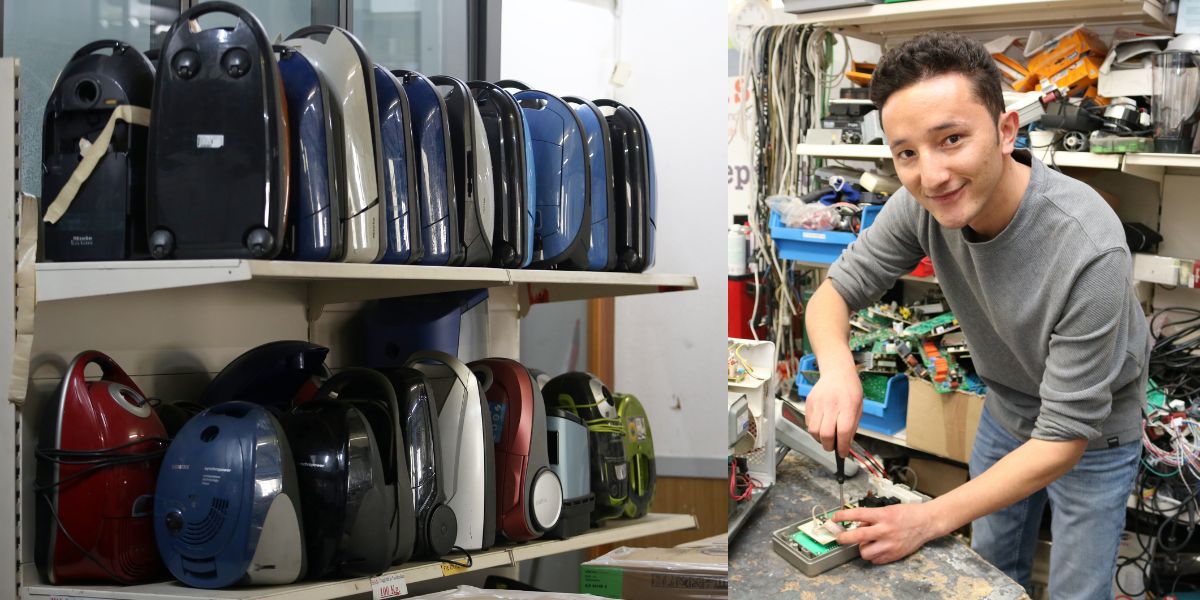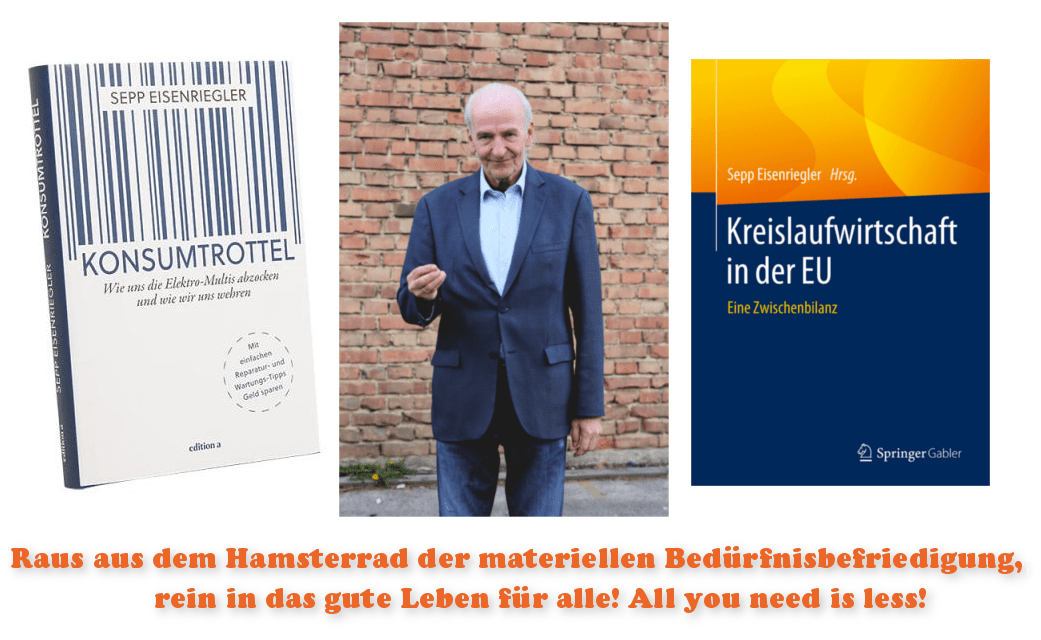Summer interview with Managing Director Sepp Eisenriegler on the repair bonus, our R.U.S.Z projects and the contribution of repair to climate protection
How does the repair bonus work at R.U.S.Z.?
After a lull of almost a year, things really took off on 26 April. We were flooded with repair orders. Obviously, the Saturn slogan "cheap is cool" also works with our repair-minded customers 

However, we should bear in mind that reducing repair costs by 50% is only a crutch against the existing market failure. It cannot be that profit-oriented, international consortia exploit raw materials in the countries of the South, which are then processed in emerging countries under inhumane conditions into products that we buy cheaply in the North and throw away after short usage cycles. Some waste then ends up where the raw materials come from and, in the case of electronic waste in Ghana, endangers the health of the people living there. Not to mention the ecological impact.
What we really need by 2026 at the latest is a socially acceptable, ecological tax reform that taxes critical raw materials and relieves labour!
What are the upcoming projects of the R.U.S.Z?
In the course of our search for social franchise partners, we found out that our UN SDG Good Practice Repairs4Future could not be spread as easily as we had imagined due to a lack of repair technicians. We have already successfully completed a qualification measure called "Resetech", financed by the AMS and carried out together with the BFI. But this is not enough by far. That is why we are now founding the R.U.S.Z Academy, which will provide us and our partners with well-trained repair technicians. With this, we have the perfect grandchild-friendly offer that serves all dimensions of sustainability. First throughout Austria, then in the D-A-CH region and soon throughout the EU. US media have already shown interest in our model for eco-social transformation.
When Thomas Schottenberg described you as a "world saver" in his new book, there was a little controversy on Facebook about whether you can save the planet by repairing and "using things longer instead of buying more often". Would you like to encourage us in this regard?
It's not about saving the planet or the climate. They can both do just fine without us. The problem - that's what we have. It's about preserving the foundations of life for the human species! And that is hard enough. We know the problem: the available resources are enough for everyone, but not for the greed of a few!
A significant contribution to the preservation of our livelihoods would be to reduce our shopping addiction, our consumerism to a tolerable level: if, for example, EU private households were to use their washing machines, hoovers, laptops and smartphones alone for just one year longer, this would save 4 million tonnes of CO2 equivalents. This would be equivalent to 2 million fewer cars on Europe's roads (EEB 2019: Cool Products don't cost the earth).
And we will probably manage that! Maybe even more? Out of the hamster wheel of material need satisfaction and into a good life for all!
Inzwischen ist es wissenschaftlich abgesichert: Jede erfolgreiche Maßnahme zur Verlängerung der Produktnutzungsdauer ist ein individueller Beitrag zum Klimaschutz. Reparatur ist damit die Königin der Kreislaufwirtschaft!
- 52.7% of the total lifetime environmental impact of household appliances is caused by production and distribution (Steiner et.al. 2005: Timely Replacement of White Goods)
- 50% of global carbon emissions come from the extraction and processing of natural resources (UN Environment 2020: Global Resources Outlook 2019)

It is now clear that the goals of the circular economy can only be achieved through repair-friendly products and their longer use through maintenance and repair. Therefore, we need fewer but durable and easily repairable products that spread their ecological rucksack over many years of use.
This is what we have been working towards at R.U.S.Z. for decades. Our Mission Statement
"A social enterprise initiates a fundamental change in EU policy through the Repair Service New and the march through the (EU) institutions"
is not an exaggeration. Now we can reap the fruits of our lobbying work: With the circular economy and the EU Green Deal, the EU's regulatory policy has come round to our demands for resource conservation, and the manufacturing industry has grudgingly taken note. Now it's up to us consumers: Do we want to continue to act as consumer idiots or do we want to follow the recommendations of progressive politicians and scientists who support the circular economy in word and deed? Of course, I would also prefer the post-growth economy, but it is not yet politically acceptable.